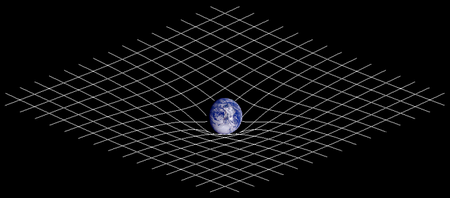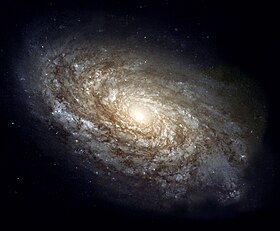School:Physics and Astronomy

A school is a large organizational structure which can contain various departments and divisions. The departments and divisions should be listed in the departments and divisions section. The school should not contain any learning resources. The school can contain projects for developing learning resources.
Physics department[edit | edit source]
The department topics and learning resources are incorporated within several of the departments as core curriculum and are common to all types of physics degrees. A topic page is a starting point for choosing between many different existing learning resources in the Wikiversity on that topic. When only one learning resource, for example, a specific course, lecture or lesson, is available on a topic, that specific resource is listed here. Additional topics, relevant to particular degree types, are specified in individual departments. For more information please review the Bachelor of Science in Physics requirements.
Divisions[edit | edit source]
Radiation astronomy department[edit | edit source]
This is a relatively new Department at Wikiversity, and its growth depends on the participation of everyone who seeks to learn about astronomy. The basic philosophy of Wikiversity is to learn by doing. This is reflected in the content of lessons and activities. However, "learning by doing" means more than just reading a lesson and following the directions; hopefully you will participate in the process of creating lessons and sharing your experiences.
To get started try the lesson on Stellar evolution or the activity on Observational astronomy.
For a glimpse of some of the topics that we hope to cover in the future see the Radiation astronomy courses.
If you have any questions about astronomy or requests for topics that you would like to learn, post them to the astronomy help desk.
Divisions[edit | edit source]

- Amateur astronomy - The study and observation of objects in space by non-professionals.
- Astrophysics - The study of physics of the universe. Indepth discussion of the concepts and objects in the universe to someone who has a basic background in physics and mathematics.
- Cosmology - The scientific study of the nature and evolution of the Universe as a whole.
- Radiation astronomy - nearly all observationally obtained information in astronomy comes from the use of radiation astronomy.
Research projects[edit | edit source]
- Learning project: Astronomy Project - students access public astronomy databases and explore outer space.
- Astrophysics Source Code Library = ASCL
- Early telescopes - an original research effort to find and evaluate evidence that telescopes in some form have been in use well before 1609 (391 b2k).
- Learning project: Energy, Society, and the Environmment - project for students in PHYS 2104 at Cape Breton University.
Learning resources[edit | edit source]

As with all Wikiversity disciplines the courses here are supported by the texts at Wikibooks specifically of interest are the books on the Physics bookshelf. The books below are representative of what is available.
- Physics and astronomy Wikibooks
- Educational materials for physics and astronomy, free as in freedom and price.
Style guides[edit | edit source]
Wikiversity resources[edit | edit source]
{{Charge ontology}}{{Materials science resources}}{{Physics resources}}{{Radiation astronomy resources}}{{Stars resources}}
Wikipedia articles[edit | edit source]
Wikibooks[edit | edit source]
Improvement drive[edit | edit source]
These pages are in need of expansion and improvement:
- Basic astronomy - Basic Description and properties (luminosity, density, temperature, chemical composition) of the universe. Description of astronomical concepts without alot of required background in physics or mathematics.
- Draft:Astrogeology
- Draft:Astrognosy
- Draft:Astrohistory
- Draft:Callisto
- Draft:Ceres
- Draft:Classical mechanics
- Draft:Comets
- Draft:Dione
- Draft:Distances
- Draft:Early telescopes
- Draft:Electrochemical capacitors
- Draft:Electron beam heating
- Draft:Electrospheres
- Draft:Electrostatic suspension
- Draft:Electroweak interaction
- Draft:Enceladus
- Draft:Gases
- Draft:Geophysics
- Draft:Io
- Draft:Liquids
- Draft:Mems capacitors
- Draft:Moon
- Draft:Natural electric field of the Earth
- Draft:Near-surface solar fusion
- Draft:Neutrinos
- Draft:Nuclear physics
- Draft:Petrophysics
- Draft:Planets
- Draft:Plasmas
- Draft:Pluto
- Radiation
- Draft:Keynote lectures/Radiation astronomy
- Draft:Radiation physics
- Draft:Serpens X-1
- Draft:Solids
- Draft:Titan
- Draft:Vela X-1
- Draft:Venus
- Draft:Vesta
People[edit | edit source]
- mikeu - interested in astronomy
- Marshallsumter - the full length semester-style course principles of radiation astronomy is up and running.
Inactive[edit | edit source]
- Roadrunner - I am currently trying to create a degree plan Bachelor of Science in Physics that will be an open architecture degree which replicates the Course 8 experience at the Massachusetts Institute of Technology
- Alisone
- Chocoman
- Ryan
- Augustus
- Aquistive bud - Anyone interested in discussing any topic related to physics is warmly invited at my talk page.
- Jolie - interested in astronomy
- Enlil Ninlil Any but would like the areas that are off concern to Geology and Palaeontology.
- David - interested in Quantum Gravity. I have postgraduate degrees in physics, mathematics and astrophysics.
- User:fibonacci101 - I have a great interest in physics and astronomy.
- User:Beratatmaca93 - I have been interested in physics, so if you want to share your ideas with me, please send message at my talk page.
- User:Cdh1001
- Tarun-Science - I am a 15-year-old teen interested in Physics and Chemistry.
- User:Quinjica- I have a great interest in Quantum theory of Gravity.
External links[edit | edit source]
- Become a Theoretical Physicist Created by Gerard 't Hooft, winner of the Nobel Prize in Physics. He claims on the site it contains links to all necessary information required to become a theoretical physicist. I have perused the site some and their is an abundance of links to a wealth of information. I'll post this on several Wikiversity pages so people find out about it.70.120.214.27 (discuss) 17:44, 19 June 2013 (UTC)
- MIT 8.01 Physics I: Classical Mechanics, Fall 1999 - Video Lectures
- MIT 8.01 Physics I: Classical Mechanics Fall 1999 - Course Main Page
- MIT 8.02 Electricity and Magnetism, Spring 2002 - Video Lectures
- MIT 8.03 Physics III: Vibrations and Waves, Fall 2004 - Video Lectures
- Open Yale Course - PHYS 200: Fundamentals of Physics
- CMU, Physics With the Andes Workbench
What is physics? (click each box for answer)
| ||||||
|---|---|---|---|---|---|---|
|